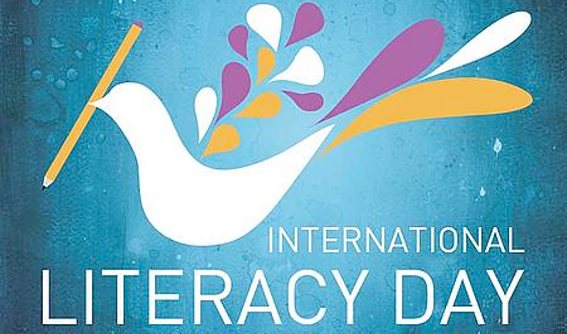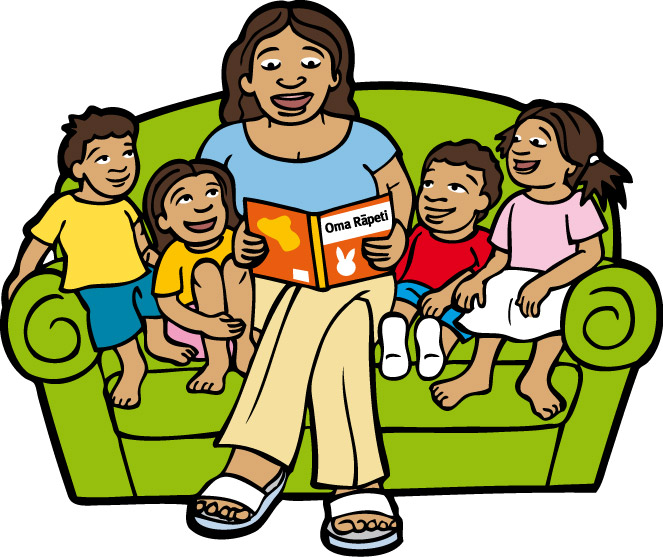Celebrating Literacy | Kellie-Anne Brown-Campbell

One of the age old phrases that most of us grew up hearing as young children is “Reading maketh the man”. It was drilled into our heads that to do anything meaningful, and succeed at school and life, literacy skills were critical! According to the Oxford Dictionary online, literacy is defined as “the ability to read and write”, and I would add, “The ability to read and write, at least at your age/grade levels”. It is very important to highlight that literacy is not just related to reading skills, but also covers one’s written expression and written language skills. Reading can be seen as a mode of communication, a way of communicating with the past, a way of reaching into the future. If we think about books, the plethora of books that have been written, one’s mind will be unable to fathom or comprehend the vast array of topics that are covered.
As we teach reading skills, I shall use this platform to highlight that it is equally important to improve and explicitly teach our children writing skills. Many times, persons may not have the power or opportunity to express themselves verbally, but the “power of the pen” cannot be denied. In our local context here in Jamaica, we have assessments of our children’s writing skills as early as Grade Three as part of the Grade Three Literacy and Numeracy Diagnostic Test. A component of the literacy assessment is Communication Task which usually requires students to write a letter on a particular topic, or they may be given pictures from which they will have to construct an organized and well-sequenced story.
International Literacy Day 2017 will be celebrated under the theme, “Literacy in a Digital World”. This theme is quite appropriate as the world is rapidly becoming more digitized. However, the importance of being able to communicate thoughts and ideas in writing (or in typing), will always be an important skill. As my parents used to say “if you don’t read you won’t be able to write well”. Again, we see the inseparable connection between reading and writing. Reading helps children to learn new words and vocabulary, how words are used in context, spelling, etc. Educators, especially those teaching language arts, find that children who are good readers, are also often good writers. It is highly recommended that parents encourage the development of writing skills alongside reading, especially as children progress to higher grades.
As the school year starts let us remember the importance of literacy skills and the fact that these skills need to be directly taught and reinforced, not just at school but also at home. Parents can encourage children to read and write more, and also model the behaviours that they want to see in their children. Some way that parents can help children develop their writing skills include:
- Have young children read material of interest, whether paperback or electronic, and encourage the drawing and simple labelling of pictures/drawings.
- As children get older and reading/spelling skills improve, encourage journal writing or the writing of very simple stories (one or two sentences), accompanied by pictures.
- Encourage reading out loud and the development of writing skills based on material read.
As we celebrate International Literacy Day, let us as parents and educators remember that young children will learn to read, but as they get older they read to learn. Reading can take our children places they may have never dreamed they could go and through reading they are able to build the skills necessary to develop writing skills. We have to be patient in teaching them writing skills. As you read together and write together, just think – You are helping your child to make strides to becoming a better reader, writer and to a larger extent a great communicator!
Written by: Kellie-Anne Brown-Campbell, Licensed Associate School Psychologist
Learn MoreThe Importance of Reading With Your Child | Kellie-Anne Brown-Campbell

The literature is littered with numerous reports on the fact that parent involvement is a number one factor in predicting early literacy success and later academic achievement. As parents, we often pass off the importance of our roles in the development of our children’s academic skills, especially reading, onto school. Some comments which we may hear are: Why should I read to my child? They do enough of that at school! I am not a teacher! On the contrary, as a parent, you are your child’s NUMBER ONE TEACHER! Children need their parents to act as models through daily reading practice in an effort to successfully navigate through early literacy skills and build on later skills. In this article, I would like to highlight three main reasons why it is important and in fact valuable, to read with and to your children!
- Reading exposes your child to rich language and diverse content. When reading books with your children, they are exposed to a wide vocabulary and more complex and diverse ways of expression, rather than the mundane ways of communication they may experience on a daily basis. Therefore, books allow parents to expand the language environment as they become their children’s first and most important teachers. Parents are therefore able to immerse their children in rich and varied language, sparking interest in information, building imagination and even developing the cornerstones of interest in topics such as science and math. It is therefore a great idea to expose children to not just fictional material, but also non-fictional books.
- Reading with your children helps prepare their minds to succeed in school. The benefits of shared reading know no age limits. Babies are soothed by their parents’ voices; school children reading to parents can show their new accomplishments or seek their parents’ help and books for toddlers can help children get ready to learn to read. Children are used to listening to language for its meaning, but reading demands that they also pay attention to the sounds of language, helping to build phoneme and phonological awareness skills. When reading to your children ask them about rhyming words, homophones, similar syllables, etc. This helps to build a good foundation in language.
- Reading with your child can build family ties and allow for bonding.Reading with your child is most beneficial when parents take it as an opportunity to converse with their children through topics and ideas that come up in the books. Reading together is family time; it is fun time, cuddle time, a time to share your passions, perspective, and your values but also a time to listen. It creates a time for children to express themselves as well as an opportunity for parents to show their willingness to listen. Try it today! Build a conversation around a book and experience the joy of having a conversation with your child!
Written by Kellie-Anne Brown-Campbell, Licensed Associate School Psychologist
Learn MoreWill you make the Same Mistake as Me? Your Baby Cannot Read
Your Baby Can Read – Early Literacy – Parenting.com.
We’re all looking for the perfect program or class to develop our latent baby Einsteins. Which is why the $199.95 Your Baby Can Read 5 DVD program (yourbabycanread.com) is so enticing — wouldn’t it be great if our babies were geniuses and could read?
Of course, implicit in the marketing is the assumption that our babies should read if we are to Keep Up with the Joneses, make our babies smarter, more athletic and genius artists.
Except, when I looked at child development research, I found that baby’s brain cells need time to grow and develop synapses. This happens with touch, stimulation, play, good nutrition, and that sort of thing. It takes time.
*** *** ***
The Your Baby Can Read creator, Titzer, claims on his website, “When children develop reading skills during their natural window of opportunity, from about birth to age four, they read better and are more likely to enjoy it.”. Not true says decades of research. Learning to read early means you learned to read early. It doesn’t mean that you are going to love reading.
*** *** ***
Here’s the other thing that bothered me about that overheard coffee shop conversation — Why? Why do we want our babies to read anyway? To beat out all the other kids?

